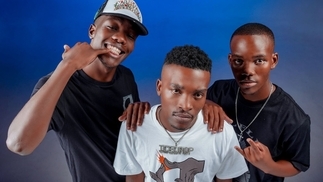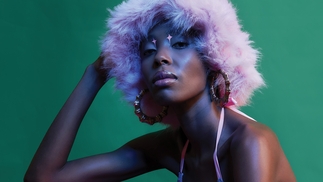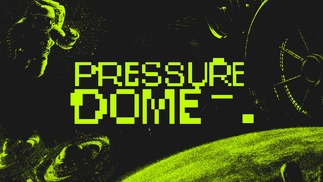The Sound Of: Stay True Sounds

South Africa’s biggest independent label is taking house music to new heights and changing the lives of local artists in the process. Alongside a mix of tracks from its catalogue, founder Kid Fonque speaks to Kitty Amor about the rise and rise of Stay True Sounds
Over the past six years, three words have come to dominate any conversation about South African electronic music: Stay True Sounds. Recognised as the biggest independent label in the country and run by the maestro, Kid Fonque, the legacy of this imprint is already evident through the moves it’s making on the continent, changing the lives of the local talent it supports. With the likes of FKA Mash, Dwson, Sio, China Charmeleon and Hypaphonik turning out hit after hit, Stay True Sounds has become the holy grail for house music lovers in South Africa.
In his rebellious teens, Kid Fonque left education to fulfil his dreams of playing music. A stay in the UK when he was 17 enabled him to start a vinyl collection, and he returned to South Africa with a large amount of trip-hop, landing himself a residency at Club 206 in Johannesburg. He had to bring his own sound equipment, but it was essential experience, playing six or seven- hour DJ sets back-to-back with friends.
Hungry to get more involved in the industry, Kid took an opportunity to work at a music retail store. Starting out as a security guard, he began selling CDs on his lunch break, and after impressing management with his sales and musical knowledge, Kid was given a role as a salesperson, which later progressed to working in distribution. This led to the start of a crucial relationship with Harael Salkow and Sergio Botelho, the CEO and managing director of legendary SA label Soul Candi Records. Having worked their distro account, they asked Kid to join the label full-time as a sales manager.
At the time, DJ, producer and label manager Brett Jackson was one of the most influential people at Soul Candi, but when he sadly lost his battle with cancer in 2011, the label was left with a void. Having demonstrated great work ethic, Kid became the new label manager, a position he held until Soul Candi closed a few years later. He had to learn on his feet, and quickly gained knowledge on the business side of the record industry, copyright law and how to run a label. But it was a challenge.
“As Kid Fonque, I believe I represented something very different to the label I was working for,” he says, highlighting the dissonance between the music of his DJ sets and that of his day job.
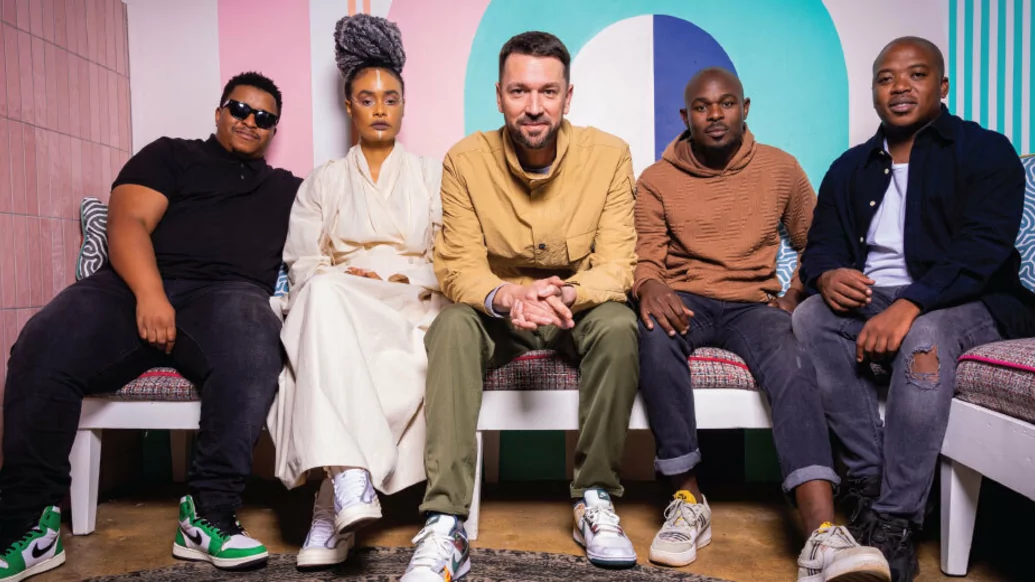
Though there was pressure to sign songs that would meet sales targets and get radio plays, Kid also took pride in the music he acquired for the label and the platform he created for artists such as Jullian Gomes and Muzart. It was the former who suggested he and Kid open a label together, should he ever leave Soul Candi. Though Kid couldn’t see that happening, fate intervened, as the label started to degenerate and eventually Kid settled for redundancy. He held Jullian to his word, and Stay True Sounds was born.
In the beginning, the pair’s primary focus was getting the business side of the label started, and they never had any artists in mind beyond themselves. That all changed when Johannesburg-based house DJ, Bruce Loko, sent in some music. “Bruce Loko set us up with what was to come in terms of the sound of Stay True Sounds,” says Kid, reflecting on the first release. In South Africa at the time, there wasn’t an obvious home for independent underground electronic musicians.
“There were a number of artists that were producing the music we wanted, which was completely different to the music I was looking for at Soul Candi, as it excited me,” Kid recalls. He explains how the label’s mission has always been to “put out dope music”, proudly stating that since its launch, “it has opened up a world of music in South Africa that couldn’t attach itself to something”.
After two years, Jullian respectfully decided to leave the label and start his own, World Without End, though the pair still support one another’s ventures. This gave Kid the freedom to further develop the imprint how he saw fit, such as creating a sister label called STY TRU BTS to represent singer-songwriters, like Sio, providing “a platform to put out their art no matter what it is”.
During this time, Kid also landed himself a slot on South Africa’s popular public radio station 5FM, where he started his Selective Styles show. Kid acknowledges how the show has “helped the growth of Stay True Sounds, as I get to share the great music from our independent artists”.
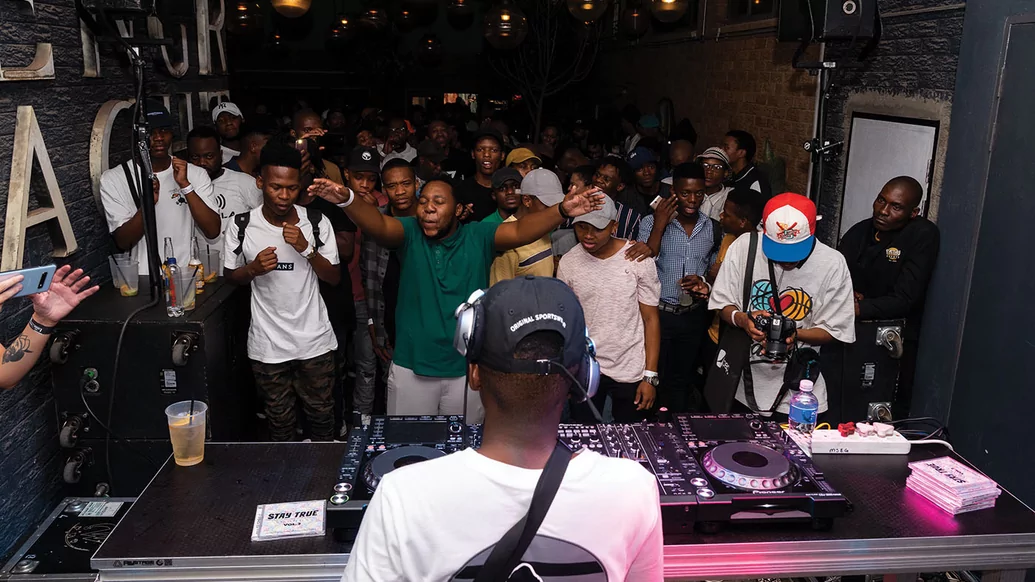
Kid recognises his privilege as a white male in South Africa, where the legacies of colonialism and apartheid still require work to be done. What he hadn’t recognised when creating the label was how remarkably it could contribute to changing the lives of his artists. Kid has a gift for seeing the star in each artist he works with, often before they see it in themselves.
When Kid stumbled across the work of China Charmeleon and played one of his tracks on 5FM, it gained a huge online reaction; China was on the other side of the airwaves battling depression and suicidal thoughts. China made contact with Kid, sending unreleased material which led to his debut EP, ‘Midnight Rain’, for Stay True Sounds in early 2020, helping the producer along the path to rediscovering his own self- worth. Since then, he’s released three albums of original material — ‘Colours’, ‘My Father’s Records’ and ‘The Third’ — and a compilation remixing the label’s catalogue in celebration of its 100th release.
In a similar vein, Kid met Sio in 2015, and after years of building up her catalogue through features, he believed the singer was ready to give the world her own body of work. After creating her first album ‘sbtxts’ in 2019, released on STY TRU BTS, Sio gained traction when Apple Music featured her in its New Artist Spotlight series. This gave Sio the courage to share her painful truths on her second album ‘Features’, released in 2021, this time on the main imprint. This groundbreaking piece of art witnessed Sio address her anger at not feeling safe or appreciated as a woman of colour, as well as being a survivor of sexual abuse. Sio cleverly used the huge platform of house music to spread her message, requesting humanity do better.
Although it was a heavy album to hear, Kid believed that his label was “just the vessel that Sio needed to use to tell the world her story, and trusted in the art”. His instincts were right, and Sio ended 2021 with ‘Features’ nominated as album of the year by Apple Music South Africa.
Other projects that have had a big impact on the label include Dwson’s 2018 album ‘Impulsiv’ — the first album on the label and Kid’s first move after the departure of Jullian — China Charmeleon’s ‘Colours’, and the releases of Jazzuelle, all of which have helped grow Stay True Sounds’ international audience.
When asked what the secret to his success is, Kid simply says that he trusts his ears and his gut when it comes to releasing music: “I stay true to the music that resonates with me and my representation as a DJ and radio host”.
During the pandemic, Kid decided to ramp up the release schedule. He created STS Friday, releasing music every week over lockdown, helping people through a challenging time. This shifted his focus even more onto the label and the radio show, as opposed to his own DJ career. In setting his intentions for 2022, Kid wishes to grow the label outside of South Africa and show the world the incredible talent within his home country, showcasing how to play the music as a DJ, but also how to consume it. “On my European tour, I have been able to convince people of the story I am telling through the music that is being released,” he says. Now that story, and the power of Stay True Sounds, are things nobody should need convincing of.
Listen to a mix of tracks from the Stay True Sounds catalogue, mixed by Kid Fonque, below.
Tracklist:
Fka Mash & Tahir Jones ‘Siyabloma’
Mpyatona ‘Be With You (Chronical Deep Remix)’
China Charmeleon ’Ndikhokhele ft Nkulu Keys & Thakzin’
Beatsbyhand ‘Are You Jazz?’
Chronical Deep ‘Make Up Your Mind’
SculpturedMusic ‘Sad To Think (Fka Mash Glitch)’
EUGGY ‘Westside Warriors (Hypaphonik Derived)’
El Payo ‘Frequency’
Sio ‘Locked ft SGVO’
Kid Fonque ‘Undefined (Take 2)’

